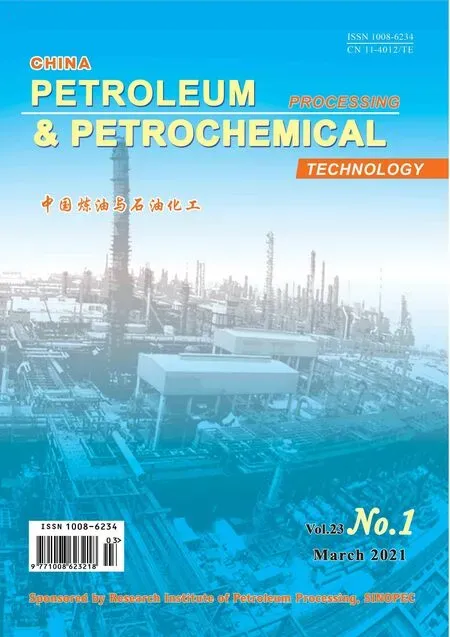RIPP Opens a New Route for Catalytic Cracking of Heavy Oil
On January 19, 2021 the project “The ring-opening cracking technology of naphthenic-base heavy oil for increasing high-octane gasoline production” undertaken by the SINOPEC Research Institute of Petroleum Processing (RIPP) as the leading institution has passed the review and appraisal. The experts attending the appraisal meeting have unanimously recognized that this project has made remarkable progress through bringing forth new ideas in improving the ring-opening cracking process of naphthenic-base heavy oil to form a SINOPEC’s new platform of catalytic cracking technology with independent intellectual property rights and free operation rights.
In recent years, the FCC feed oils have been becoming increasingly heavy and inferior, while on the contrary the fuel products are required to be lighter and cleaner,which has expedited the extensive application of residuum pre-hydrotreating technology. The FCC feedstock after hydrotreatment still has high contents of naphthenic hydrocarbons and aromatic hydrocarbons. In order to tackle the problem related with difficulty in cracking the naphthenic ring and propensity for coke formation, the research team of RIPP on the basis of synthesizing novel matrix and improved zeolite materials has developed new RFCC catalyst for ringopening and cracking of macromolecules of naphthenic hydrocarbons. The commercial-scale tests of the catalyst have revealed that this catalyst can promote the catalytic conversion of heavy and inferior feed oils and increase the yield of high add-value petroleum products, while concurrently increasing the operating efficiency of process unit and improving the gasoline quality with obvious social and economic benefits. Upon processing the same feedstock under the same operating conditions, this catalyst can bring about improved product quality and enhanced operating efficiency, leading to an increased LPG, gasoline, and diesel fuel yields and a decreased coke and slurry yields, coupled with a gasoline octane rating increase of 0.6 units.
- 中國(guó)煉油與石油化工的其它文章
- Preparation and Rheological Properties of Vacuum Lubricating Grease
- Effects of Different Plant Hormones for Microbial Degradation of PASHs and Diesel under Aerobic Conditions
- Nitrogen Removal Performance of Denitrifying Ammonium Oxidation System in Treating Sulfamethoxazole-laden Secondary Wastewater Effluent
- Removal of Basic Nitrogen Compounds from Diesel Fraction with NMP-0.5ZnCl2 Coordinated Ionic Liquid
- Flow Characteristics of Crude Oil with High Water Fraction during Non-heating Gathering and Transportation
- Comparison and Analysis of Toluene Adsorption Properties of ZSM-5 Molecular Sieve Treated by Different Modification Methods: Adsorption Kinetic and Mechanism Studies

